Madness in Art: A Powerful Connection
Madness and art have long shared a profound and powerful connection, where the boundaries between genius and instability often blur. Many acclaimed...
Maya M. Tola 28 October 2024
24 January 2025 min Read
2020 marked a transformative year in education, propelling millions of students and educators into the realm of online learning and ushering schools into a new digital era. As the integration of technology continues to advance in education, with each passing year witnessing more blended teaching approaches, we find ourselves bidding farewell to some traditional school scenarios reminiscent of days gone by. Are you prepared for this nostalgic journey akin to a modern-day Proustian exploration?
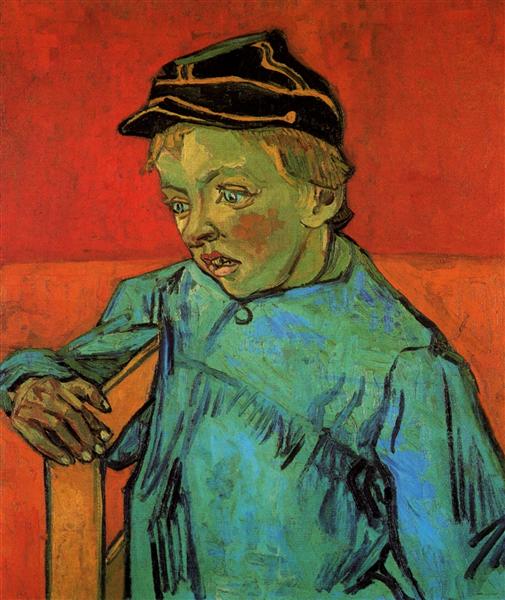
The switch to online learning might see books slowly becoming digitized or substituted with online materials. That means no more carrying heavy backpacks with all those textbooks, exercise books, and notebooks every day! It’s a positive change for the poor little spines of all the students who don’t get a daily lift from their parents. Although at first glance Camille Roulin might be holding a book, if you look closely you will see that it is actually the frame of a chair on which he sits. He looks pretty exhausted after a long day of studying.
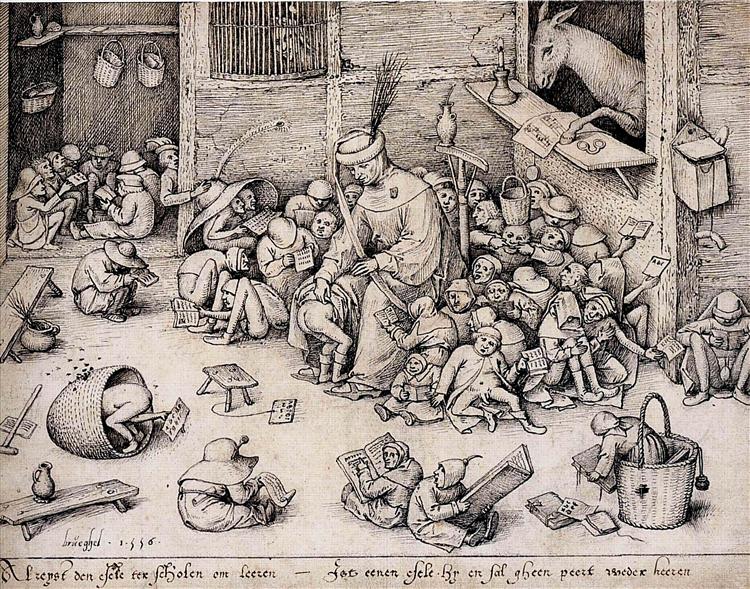
Sure, here we’re talking ancient history that I know only from the stories of my grandparents. They told me that if a child didn’t want to study and did badly on tests, they were sent to the so-called “ass-desk”. In other words, this was a desk of shame. In extreme cases, they forced the child to wear ‘donkey ears’ as the ultimate symbol of their laziness and stupidity. We can see this practice has very old roots as illustrated by this print from the 16th century. The text below this mockery of the contemporary school reads:
Al reÿst den esele ter scholen om leeren ist eenen esele hÿ en sal gheen peert weder keeren (If you send a stupid ass to Paris, if it is an ass here, it will not be a horse there. / Although the ass goes to school in order to learn, if it is an ass, it will not return [as] a horse).
– translation from Nadine Orenstein, ed., Pieter Bruegel the Elder: Drawings and Prints. Exhibition catalogue. New York: Metropolitan Museum of Art, 2001, p. 142.
Was Bruegel‘s print criticizing teachers’ methods of punishing the naughty kids, or the system that produced stupid pupils? Or maybe even the stupidity running in the system of Antwerpian children? Either way, online teaching and modern methods will never send anyone to the ‘ass-desk’ again. Thank heavens for that.
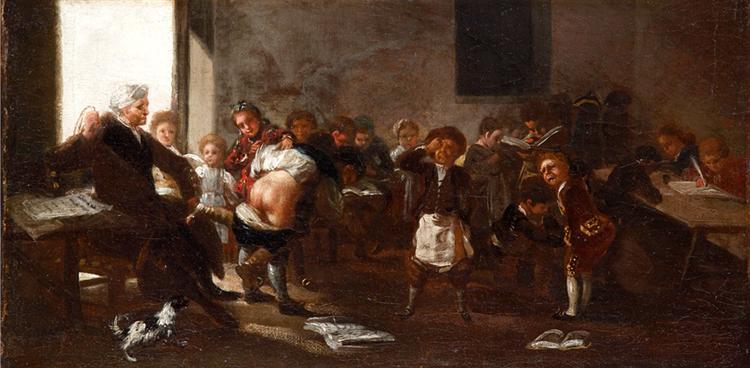
It seems that some things never change. Two hundred years after Bruegel’s chaos in class, Goya shows us a no less messy classroom. Books on the floor, nerds trying to study, boys crying, a dog jumping (who let the dog in?!). The central element of this painting is the exposed bottom of a naughty boy who is about to be whipped by the merciless hand of the teacher. Look at the teacher’s right arm, which is raised to give the first blow with a whip. Also, check out his face, this is the face of cold-blooded punishment. Well, I definitely won’t miss violence in online learning.
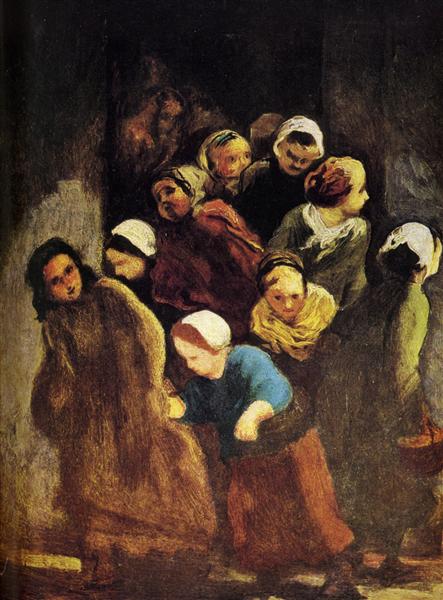
We can never forget about the usual rushed exit from school. I still remember racing through corridors to pick up my jacket from the cloakroom and trying to mount the stairs as quickly as possible to be the first one out, ready to gossip with my friends on the way home. The same things happened in the 19th century, as Daumier captures here. There is no free space between the girls’ bodies (although they leave the building in a much more orderly manner than I used to). However, the Turkish boys below look exactly as we did on a Friday afternoon…
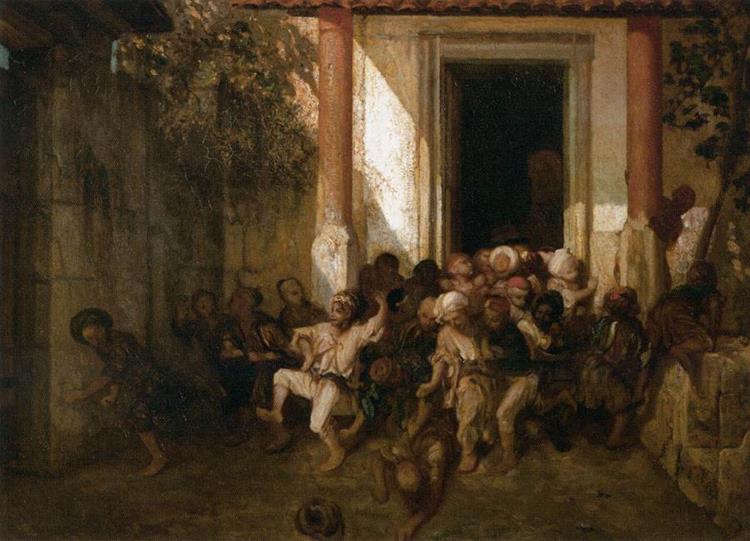
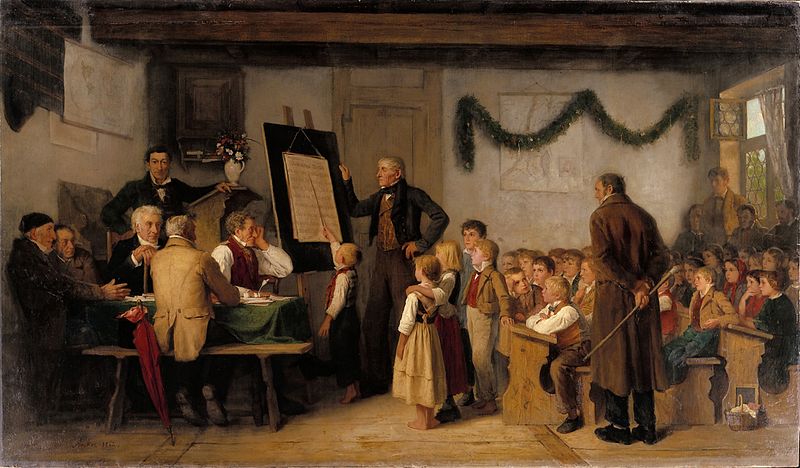
Chalkboards are already a thing of the past. In the era of online learning however, cross-examination in the presence of the whole class will also be gone. All those enemies and friends listening to your answers and waiting for your failure or success. What stress! I remember my sweaty hands and shaking legs while waiting for the geography teacher to look through the register and fish out names for interrogation. In Anker’s painting Swiss students had it even harder, as at least eight adults were listening to the poor boy.
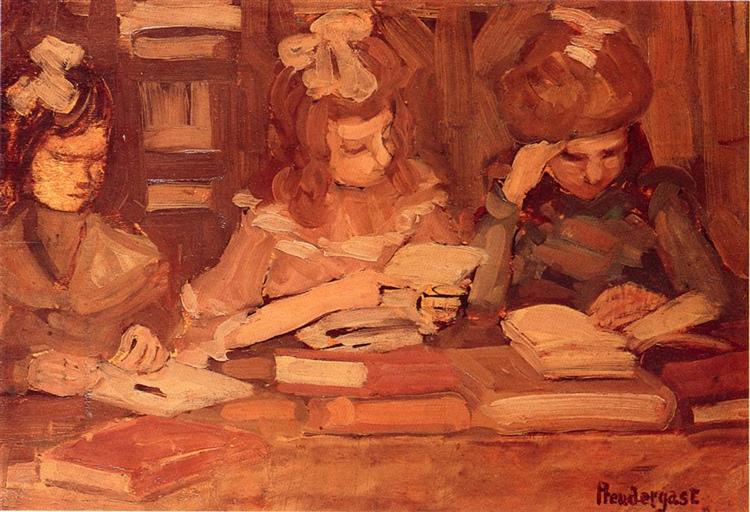
Anyone who ever attended a boarding school knows that the library was not only a study space. It was also a place for long romantic dates, long snacking sessions, long afternoons of procrastination, and long naps. Are libraries getting less popular? Will students find a new space to integrate? Or will they only interact online? The future will tell.
DailyArt Magazine needs your support. Every contribution, however big or small, is very valuable for our future. Thanks to it, we will be able to sustain and grow the Magazine. Thank you for your help!